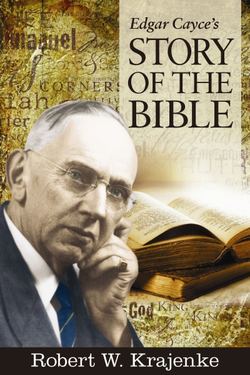Читать книгу Edgar Cayce's Story of the Bible - Robert W. Krajenke - Страница 31
На сайте Литреса книга снята с продажи.
Earliest Developments—The Animal Nature and the Ego
ОглавлениеAs perfect men separated from the unity and oneness of Spirit, individual awareness, or the ego, evolved. The impact of this was the fragmenting of the Sons of God into scattered groups and clans.
As they moved further and further away from their first estate as spiritual beings, they became dependent upon the material world, rather than the God-Within, for protection, sustenance, and knowledge. This reading speaks of that development:
In the first, then, we find the necessity of now supplying its own foods, its own protection, its own activities for amusements, for developments, for its associations one with another, and—as given—then selfishness, and the desire to excel, the desire to place self as in control of, in the supervision of, those things or others about same, gradually developed households, groups, clans, masses, then originally—or eventually—in that known as various groups, houses, or nations.
364-12
The murder of Abel by his self-centered and ego–conscious brother, Cain, is a record of this early development.
Unruly Cain is a personification of that Fallen Spirit which fathered all the divisions and separations between man.
With man’s advent into the world, then personalities, individualities began to find expression in subduing the earth, and man—with his natural bent—not only attempted to subdue the earth, but to subdue one another; and the result was the differences of opinions, the various sects, sets, classes, and races.
3976-8
The extent to which man became involved in the animal world, or materiality, is suggested in a symbolic way, when it is recorded, “God made for Adam and his wife coats of skin.” (Genesis 3:21) This verse might possibly signify the flesh body which gradually became an encasement for the soul.
As to their forms in the physical sense, these were much rather of the nature of thought-forms . . . As these took form, by the gratifying of their own desire for that as builded or added to the material conditions, they became hardened or set—much in the form of the existent human body of the day . . .
364-3
The coats of skin also signify the self-awareness that resulted from abuses of the physical body, which became a part of an actual evolutionary development, as many of the Sons of God changed their diets from herb and seed to meat.
As for the dress, those in the beginnings were (and the Lord made for them coats) of the skins of the animals. These covered the parts of their person that had become, then, as those portions of their physiognomy that had brought much of the desires that made for destructive forces in their own experience, and these then were of those about them that were given as meat, or used as same—that partook of the herbs.
364-11
Those who had partaken of the animal forces now needed the meat of the animal to sustain their physical bodies. The vegetarian diet was kept by those who had not mixed or indulged, and was the manner imaged by God (Genesis 1:29) for the souls in the beginning.7
These were those same herbs that the seed were to have been for food for the man in self, and only those that partook of same may be called even clean—in the present day . . . for these carry all the elements in their natural state. Little of minerals should ever be the properties within the system, save as may be taken through the vegetable forces, save where individuals have so laxed themselves as to require or need that which will make for an even balance of same.
364-11
Those who “remained clean” and those who indulged in “desires that made for destructive forces” are symbolically represented in Cain and Abel.
The concept of Sacrifice, which is integral to their story, was also an evolutionary concept at this time, kept by those whom Cayce termed “The Sons of the Law of One.”
. . . in the latter portion of the experience of Amilius [or Adam] was the first establishing of the altars upon which the sacrifices of the field and the forest, and those that were of that [which] satisfied the desires of the physical body were builded. 364-4
The concept of sacrifice was an attempt by those souls who were still spiritually attuned to create a mode of worship which would aid others in re-establishing their relationship to God. The real sacrifice was disengaging from animal involvements, as is seen in the following from a Life reading.
The entity was among the children of the Law of One, those that were the sons of men, yet of the daughters of the Lord—or those who had become purified of those entanglements in the animal forces that became manifest among many.
1066-1
Sacrifice was an attempt to lead souls to the realization that they must sacrifice the animal, or carnal desire, or the self-centered earthly ego, which they had builded within themselves.
For, He has given, no sacrifice is acceptable save as of the desires of self to be one with Him. 531-5
